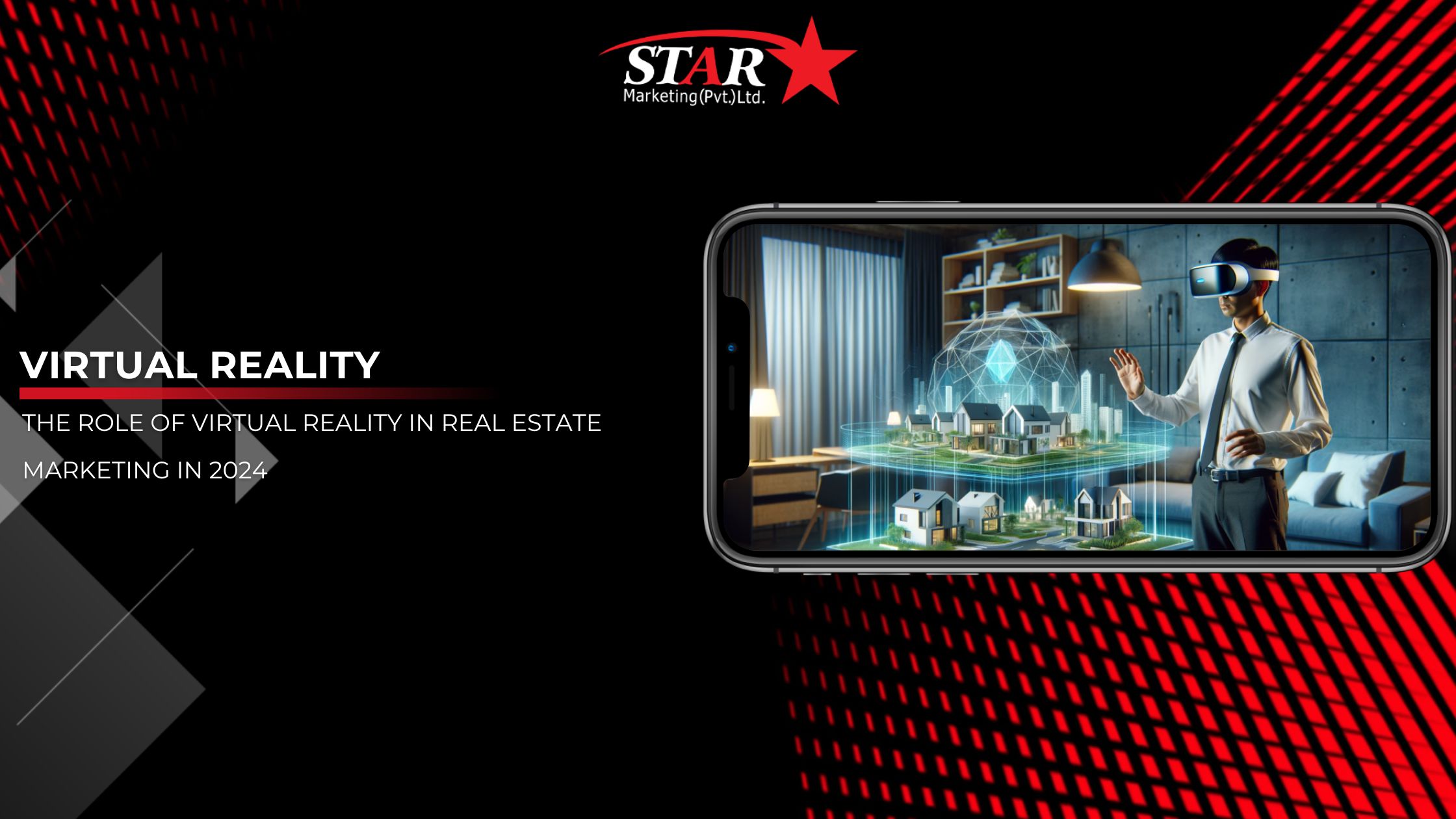
The role of virtual reality in real estate marketing in 2024 will be quite dominant. The way it has modernized the real estate buying procedure is quite evident. Not only has it made buying real estate engaging, but also it has made clients able to catch the vibe of the home they have been looking for. Being in the comfort of their home now makes showcasing their home easier than ever before, all thanks to virtual reality in modern real estate marketing. VR in property marketing lets people examine every inch and detail of a home as if they were there in person. Additionally, virtual reality (VR) makes it easier to see places that are still under development, giving purchasers a better idea of the possibilities of off-plan residences. Let’s learn how this VR technology has impacted real estate marketing dominantly.
Why companies are using VR in property marketing?
VR technology in the property market has become more famous because of its revolutionary potential to improve client experience and boost sales. Virtual reality (VR) presents a dynamic platform for property marketing, enabling prospective purchasers to fully immerse themselves in tours that replicate the actual area and arrangement. Businesses can use virtual reality (VR) to give customers the ability to engage with properties from a distance, allowing them to see every detail and picture themselves there.
VR experiences’ immersive quality encourages more in-depth interaction and emotional bonds with properties, which eventually raises the possibility of a sale. Additionally, real estate agents can set themselves apart in a crowded market by providing clients with cutting-edge solutions made possible by VR technology.
Virtual reality also expedites the property viewing procedure, saving time and money for both buyers and realtors. Virtual tours help clients focus on properties that fit their wants and preferences, which allows them to narrow down their alternatives and generate more quality leads with excellent conversion rates.
Benefits of virtual reality in real estate marketing in 2024
Here’s a glimpse of the benefits of virtual reality that have streamlined the real estate buying & selling process.
1. Lesser cost, reduced time occupancy
In the real estate industry, virtual reality replaces the need for in-person property visits, saving both buyers and sellers a significant amount of money and time. VR tours make it possible to examine houses from anywhere in the world, expediting and improving the convenience of the house-hunting process for all parties.
2. Enhanced Global Reach and Demand
Real estate agents may reach a broader range of international buyers by providing immersive virtual reality experiences. Virtual tours increase demand and may result in better offers by making properties accessible to people who might not otherwise have the chance to see them in person.
3. Emotional Engagement with Properties
Virtual reality tours offer a realistic and immersive experience that helps purchasers emotionally connect with properties. Potential buyers can develop a stronger emotional connection to a property by digitally exploring it and seeing themselves living there, which may have an impact on their choice to buy.
4. Informed Decision-Making
Virtual reality provides comprehensive and interactive property inspections, enabling purchasers to make knowledgeable choices. Through virtual reality (VR), purchasers may examine every feature of a house in detail to better match their preferences and lifestyle, which eventually results in more gratifying purchases.
5. Sales Boost for Under-Construction Properties
Virtual reality is beneficial for marketing properties that are still under construction. Developers can secure sales and draw in early customers before construction is even finished by producing virtual prototypes and models that showcase future ideas. This approach also allows them to obtain critical feedback and financial support.
6. Improved Interior Design Presentations
By virtually filling vacant spaces with furniture and décor, virtual reality improves house staging. This makes it easier for prospective buyers to see themselves living there and piques their interest in the home by enabling them to see the property with several design possibilities.
7. Accessibility for Disabled Clients
Virtual reality tours significantly increase a property’s accessibility for those with disabilities. Virtual reality (VR) guarantees equal access to property evaluations for all possible clients, irrespective of their physical limitations, by enabling those with mobility impairments to explore properties without experiencing physical strain.
8. Customized Experiences for Different Buyers
VR tours can be tailored to meet the needs of various types of customers. The user experience can be improved by including interactive features like extensive facts and figures for individuals who prefer data-driven decision-making and by emphasizing aspects like detailed visuals and interior design options for those who learn best visually.
9. Enhanced Collaboration and Communication
Better cooperation and communication between real estate agents and their clients is made possible by virtual reality. Virtual reality enables agents to remotely present properties, facilitating more effective and efficient communication, particularly with clients who are spread out geographically.
10. Eco-Friendly Property Marketing
Virtual reality in real estate helps to promote properties in a more environmentally responsible way by eliminating the need for in-person showings and printed marketing. Virtual reality tours reduce travel-related paper waste and carbon emissions, in line with industry sustainability standards.
Conclusion
Indulging in virtual reality technology is going to revolutionize the real estate world. Not only has it made the lives of agents easier and simpler, but it has also inaugurated engagement & comfort for clients. This modernized technology will not let you get bored! Its immersive experience guarantees that property viewings are both practical and enjoyable. Probably one of its most significant benefits is that it allows potential buyers physically tour every inch of a residential property without any restrictions. With the advancement of VR technology, a reduction in hardware expenses is anticipated, rendering VR solutions more accessible to a broader spectrum of real estate brokers and prospective purchasers.



Leave a Reply